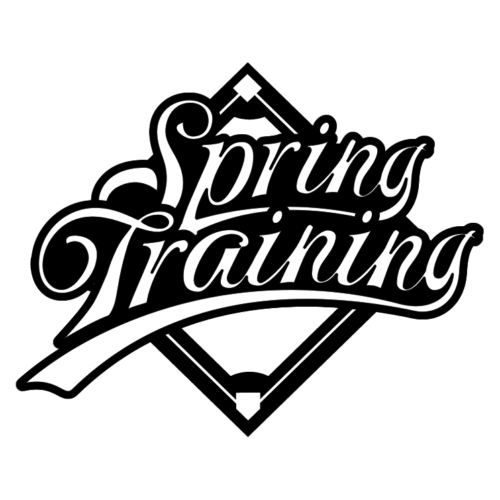 Welcome to SRED Spring Training 2020
Welcome to SRED Spring Training 2020
Lots of things are happening in the world of sport, right now. But perhaps one of the most anticipated events on the sports calendar is the start of Spring Training in Major League Baseball. Fans hope that their team will continue the successful run they had at the end of the previous season, or will get a good start for the regular season that will lead to an appearance at the coveted World Series at the end of it all.
There are over 162 games in the regular season alone, not counting Spring Training and off-season, play-off games. There will be ups and downs, victories and losses. And throughout each baseball season’s life cycle, players and teams will make adjustments, try out new pitches or combinations of defenders or line ups of hitters; experiment based on various statistics and analytical and experiential knowledge—all in an effort to give their team the best hope of achieving that World Series ring.
SR&ED Spring Training Mindset
Innovation and Research as part of Business Growth Strategy
Many Canadian businesses experience a similar life cycle not only in terms of business growth and strategy, but also in terms of innovation and research and experimental development. And each attempt to innovate and bring something new to the business and marketplace or industry can also come with its ups and downs.
It is fairly safe to say that the goal of most businesses is to provide products or services that have an impact, that make life better for their customers—this could be considered the business equivalent of a World Series ring, the ultimate prize.
Just as there will be both wins and losses throughout a baseball season, there will be similar wins in losses throughout a business’s attempt to innovate towards their ultimate prize, as well. Wins are obviously great. Everybody celebrates successes. But thankfully with SRED, experiencing a setback in your experimental development can also be a win for your company.
SR&ED Tax Credit as part of Overall Investment in Innovation
The SRED tax credit program seeks to support Canadian-controlled corporations in their experimental development journeys. SRED is not interested in your destination and whether you actually achieve it or not—it doesn’t care about your quest for a World Series ring. The SRED tax credit program cares about the different methods you tried or considered and analyzed, or combinations of technologies or resources that you tried out along the way. SRED especially cares about whether those different methods or attempts to combine different resources failed, or produced unexpected results.
Most coaches have a particular strategy when they step out on to the field to face a certain team, a certain pitcher, and certain hitters to try to give their team an advantage and a chance to win. Most innovation project managers similarly have a basic idea of how they would like to see their experimental development process go—but the actual development process itself rarely goes according to plan. Failures happen, adjustments have to be made along the way—although it may not always be obvious just which adjustments to make.
In most player interviews after a loss, players are asked “what can your team take away from this loss” or “what does your team need to do better”. A failure isn’t truly a failure, if you learn something from it. Each try generates new knowledge that is then applied to the next step in development, to the next step in evolution of a project—in the evolution of a team’s ultimate success. It’s often difficult for innovators to switch from thinking about business success in developing a viable, valuable service or product, to thinking about the journey, the steps they took to reach that success.
It’s also very important for your experimental processes that your team track their efforts through spreadsheets or photos or our helpful SRED kit, and when it comes time to talk with your SRED Unlimited consultant, be ready to talk about these kinds of details to help maximize your claim.
Why SRED is Part of the Teamwork makes the Dream Work
Pardon the cliché but the “teamwork makes the dream work” concept is really how innovation is done.
Your innovation work and investment in innovation may actually qualify for SRED tax credits.
The concept of teamwork applies not only to different people within a company to complete this work, but also to sources of funding or tax advantages and strategies to help your company reinvest in future innovation work.
As part of your business’s ultimate success story, SRED work and tax credits can be a valuable part of your resource investment strategy. Preparing a SRED claim might be considered like a sacrifice bunt or pop-fly in your ongoing experimental developmental process. Applying for SRED and maintaining supporting documentation to back up your work requires a bit of sacrifice, but moves your team into a better chance of scoring—of moving forward, of achieving a saleable or life-altering product. In SRED terms, of increasing your chances of having your project work “accepted as filed” and receiving the maximum possible refund on your eligible expenditures.
The Home Stretch with SR&ED Unlimited
Whether you completed scientific research and experimental development work within a given fiscal year, or started work that will continue into the next year, your innovative work and attempts may qualify for SR&ED tax credits every year.
This is why so many food and brewing industry and computer science and manufacturing companies, and others, have chosen to team up with SRED Unlimited to help them apply for SRED tax credits. Each year, the government awards over $4 billion to over 20,000 Canadian-controlled private corporations, partnerships, and sole proprietorships.
Maybe not a World Series ring, but definitely a home run for many companies who can reinvest that money into their future successes and prospects.
Contact us today and let us be part of your team.





1 Comment